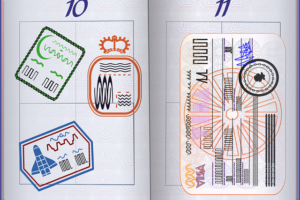Letter of Recommendation
- Posted by Edwise Foundation
- Categories Blog
- Date October 20, 2020

What is a Letter of Recommendation?
You might be familiar with the term Letter of Recommendation. The term itself gives the clear definition that it is a letter written to prospective organization or individual recommending the applicant.
Letter of Recommendation is sometimes interchangeably used as Letter of Reference. It is written as an LoR in short. The writer or the referee advocates the ability, quality and the background of the person recommended.
There are many kinds of letters of recommendation, but we will only talk about those related to admissions/scholarships/funding in the university.
What is the significance of Letter of Recommendation?
Letter of Recommendation are the integral part and one of the important documents while applying to study in any university specially for a graduate program. The graduate application is often considered incomplete without an LoR.
So, you think of graduate studies, you should think an LoR as well. However, some universities may ask for this kind of letter even for undergraduate application. These days most schools require to submit LoRs electronically through online application system, but some schools may prefer receiving this in mail or email.
If requested in email, a referee may draft a letter in a letter head, sign and email it to the respective department. If requested through mail, the referee may draft the letter, sign it and send the sealed envelope to the mailing address.
Letter of Recommendation also may be attached in visa application as it may sometimes come to be crucial.
What are the types of Letter of Recommendation?
The Letter of Recommendation that are used for the university application are generally of two types:
- Academic and
- Professional
Both the academic and professional letter of recommendation should talk about how the referee knows the person and evaluation of his/her character, skills and performance about whom the letter is being written.
An academic letter of recommendation is generally written by the previous school or anyone related to it like faculty members, department head, professors, visiting professors, or DEAN of the school.
Similarly, professional letter of recommendation is written by the supervisor, manager, department head or the CEO of the organization where the applicant was involved professionally.
A letter of recommendation is sent directly to the school you applying to by your referee without your seeing. Many schools these days send the recommendation forms directly to the referee which they are required to fill and submit.
What should the letter of recommendation generally cover?
The letter of recommendation should be able to describe the quality of a student well in relation to particular subject matter. It is important the recommender verry briefly introduces what his/her position is and in what capacity he/she knows the student.
- It should explain how his/her previous studies or experience help the student succeed in the particular intended program.
- An academic letter of recommendation should always focus on academic skills, success, interests and achievements.
- A professional letter of recommendation is always expected to have highlighted your experience, performance, skills set as well as professional traits.
What makes an LoR impressive?
As mentioned earlier, LOR plays a vital role in your admission, it is equally important to work on making your LoR strong. However, for a fact that an LoR is written by somebody else, we can still focus on many points which will result in drafting a strong letter by your referee.
Let’s take a look at some of the key points for impressive Letter of Recommendation.
Right person is the key:
Approach the one who is connected well with you in the particular subject matter. Contact those referees who are willing to write a recommendation for you and also keep in mind that they should be related to you and the program you are applying for.
For example, you may ask a faculty of your previous university who taught you Business Studies to write a letter of recommendation if you are applying for a program related to business.
It wouldn’t be a good idea if you ask a Chemistry faculty to write an LoR if you have studied Business. Also avoid asking to write a letter of recommendation who doesn’t know your academic or professional background well.
It is not advised to ask an LoR from your friends, family or juniors.
Information is key:
A letter of recommendation should provide enough information about your academic work, skills or experience. Lack of knowledge about you or your background may lead to little information which may hamper your admission chances. Try to provide more information about yourself to the referee. Moreover, specific information sometimes is very helpful. For example, your referee may disclose some facts like your high scores in a particular course.
Your interaction with referee:
You may interact with your referees and mention about your strengths and motivation so that they would be able to mention those things clearly. Also, experts recommend choosing the recommender whom you know for at least 6 months or more.
Request for the letter of recommendation:
The quality of your letter of recommendation equally depends upon how and when you request for it. It is always recommended to give enough time for your referees to write an LoR for you.
Ask as early as possible before a deadline so that they will have enough time and information to draft a quality LoR. Beside the time, the way of requesting is important as well. Requesting in person is always effective. If not, you can do it through email.
The proper salutation and a formal and humble request are important.
The tone and the format:
The tone and the format of the LoR is also responsible to make your LoR impressive and effective. The writer should make sure that the letter is written in formal and polite tone talking more about you. Similarly, the format of LoR should also be followed accordingly by the recommender. The format of LoR can be generally broken into 3 parts:
- Introduction,
- Content
- and Closing.
Introduction part generally points out who the writer is and his/her relationship with you along with your general impression.
Secondly, the content part speaks about you and all your accomplishments, traits and all other necessary details where a recommender will advocate about you.
Lastly, the closing part has a conclusion statement which strongly recommends you get the admission/GA position or scholarship.
What should you avoid in Letter of Recommendation?
🟦 Use of Cliches:
The describing words/cliches like TEAM PLAYER, CREATIVE, STUDIOUS, WORKALOHIC, ORGANISED, DEDICATED, INSPIRING, OBEDIENT add no true values. The readers expect the recommenders to show how the applicant has been creative or organized or dedicated. Avoid generic words, and get your say supplemented with strong instances and examples.
🟦 To Whom It May Concern:
Please make sure to avoid this. If the recommender doesn’t know who he/she has to address, he/she can simply address to Name of the Department/Faculty.
🟦 Opinions about the applicant’s personal information:
Universities/colleges don’t discriminate; therefore, your LoR shouldn’t have the recommender’s comments or opinions about the applicant’s sex, gender, religion, race or anything. Nevertheless, the applicant’s contribution to the organizations related to any of these can be well mentioned, if it supports the applicant.
🟦 Unnecessary information
A good LoR doesn’t have unnecessary information about the recommender and the applicant. The Professors want to know only those things about the applicant that add values,
🟦 Drafting your LoR by yourself
We can see this practice in Nepal. Please note the readers easily identify your writing patters when they compare it to your other writings such as essay or answers to other questions. Besides, this way of writing fabricated LoR is against the rules.
Finally
Most schools these days ask for 2 to 3 letters of recommendation as a part of their admission process and also mention how many of them should be academic and professional.
Referees are generally aware of the process of writing LoRs but the busy schedule, lack of good connection with you, their willingness and the way of your approach may sometimes be the reasons for them to turn down your request.
You may follow up with your referee in certain interval of time to make sure if the process is completed. You may also follow the points from this blog so that you get strong Letter of Recommendation from the right guy. Do not forget to thank the referee once you get admitted to your desired school.
Tag:Course
Edwise Foundation is your dedicated abroad education partner. We are more than an education consultancy; we're your route to international education. We have a long history of guiding ambitious young minds. Our extensive experience in counseling abroad studies and smooth application processing makes it easier for students to achieve their academic goals.
f i y t n
You may also like

Best Universities to Study Computer Science in The UK

